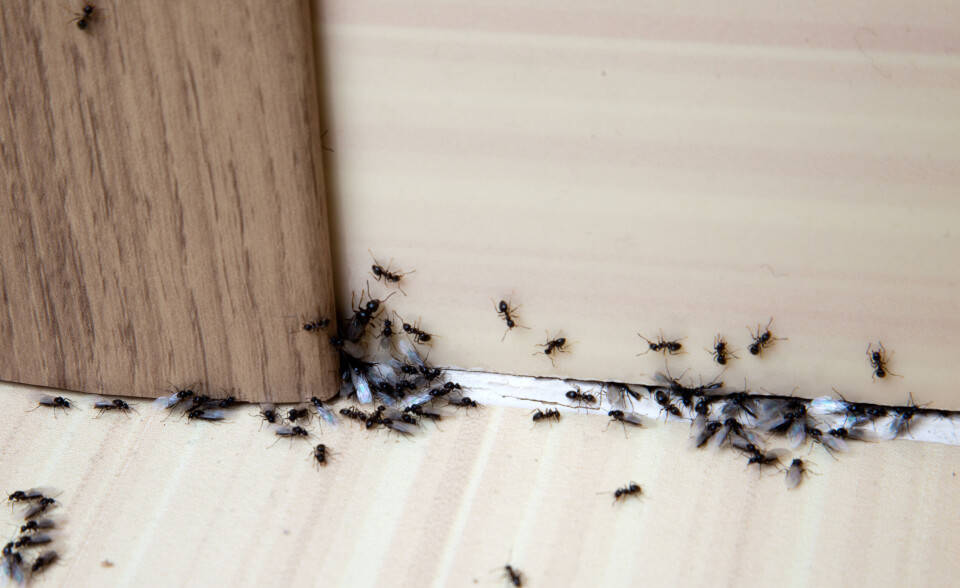-
Pistes closed, confinement orders: Alpine resorts deal with avalanche risk
Increased snowfall this weekend may cause further closures as busy school holiday season continues
-
Former French Interior Minister announces 2027 presidential candidacy
Bruno Retailleau recently asked prefectures to be tough on immigration
-
Ryanair axes Dublin-Rodez route but London connection retained
“We are disappointed but had no say in decision” say airport authorities
‘They are everywhere’: French town suffers severe ant infestation
Residents say they can no longer go outside without being bitten by the insects, which belong to a notoriously-tough Mediterranean species

A town in northwest France is suffering from a severe and persistent ant infestation, with residents saying they have tried everything to get rid of the insects to no avail.
The neighbourhood of Violettes, in Saumur (Maine-et-Loire) has been struggling with the problem for five years. Residents have now spoken to BFMTV in a final attempt to seek a solution.
The ants are ‘Tapinoma magnum’ insects, which is a Mediterranean species that is notoriously tough to get rid of, especially as it has no natural predators, specialists say.
The ants have already spread over 18 hectares of the 28,000-resident town.
One resident, Sylvie Leroy, 64, said: “They are absolutely everywhere, in the garden, the kitchen, behind the sofa, in the shower. Everybody in the neighbourhood has them. It’s a nightmare. We’ve had enough!
“My grandson no longer wants to come to play at my house because he is scared. I have to tell him that he can no longer play on the lawn…there’s nothing we can do. I’ve tried all possible imaginable products, even the most toxic. But they always come back. And they don’t sting, they just full-on bite.”
Another resident, Jean-Yves Pineau, 69, said: “We can no longer put a foot outdoors without being bitten, it’s uninhabitable. Our garden is full of them; if we stay still on our lawn, they crawl all over us.
“But not only that, they come into the house via the tiniest holes. Electric plugs, ventilation holes, joints, windows…When we get up in the morning, we find them in the kitchen. It’s very overwhelming.”
The retiree said that he spends considerable money trying to get rid of the ants, including three or four aerosols of anti-ant spray per week. He said: “It means we can be in peace for two to three hours, and then they come back. It’s quite a lot [of money].”
Residents in the rest of Saumur have now been warned of the problem. Loïc Bidault, municipal councillor in charge of the environment, told BFMTV that the only useful strategy is to try to contain the ants, and stop them from spreading further into the commune and beyond.
He said: “Specialists came on-site and said that all we could do would be to avoid the spread.”
Insect researcher and lecturer at the IRBI (Institut de recherche sur la biologie de l’insecte, based in Tours) Jean-Luc Mercier visited the site in July 2021, after a request from the Mairie.
He said that he had been “quite impressed by the quantity and extent of the ants", and said that this is “by far the largest known colony of this species in France".
However, he added that they do not represent a health hazard to humans and, "contrary to what has been said, they are not giant ants. They do not measure more than two or three millimetres,” he said.
He did acknowledge that the ants have “the ability to occupy a space very quickly” and “cause unbearable, intolerable situations for individuals who are infested”.
Mr Mercier explained that the ants are ‘polygynous’, meaning that they have several queens and can therefore create many, many workers
He said that the ant was a Mediterranean species, which could have been transported to the area by humans, such as in a pot plant that was brought back by car, and then replanted in the garden.
The researcher said that the ants were likely to remain in the area and risk spreading, as they have “acclimatised very well”. He said that unless a major predator were to attack, there is “no reason why they would not continue to proliferate”.
Global warming and rising temperatures are also likely to see the ants move further north permanently.
Residents of the neighbourhood said that they wish the local authority had acted earlier, when they were reportedly first told of the issue.
Municipal councillor Mr Bidault said that the public spaces in the town are “regularly treated” with ant killer and insecticide in a bid to stop the problem from worsening.
After a meeting on the issue in April, the council is set to offer financial support to the residents who are most affected, to help them call on specialist pest control companies in a bid to sort out the issue finally.
Related articles
France on alert for tiger mosquitoes as temperatures rise
Why are there so many flies in southwest France now?
France to take action against Asian hornets and other invasive insects
























